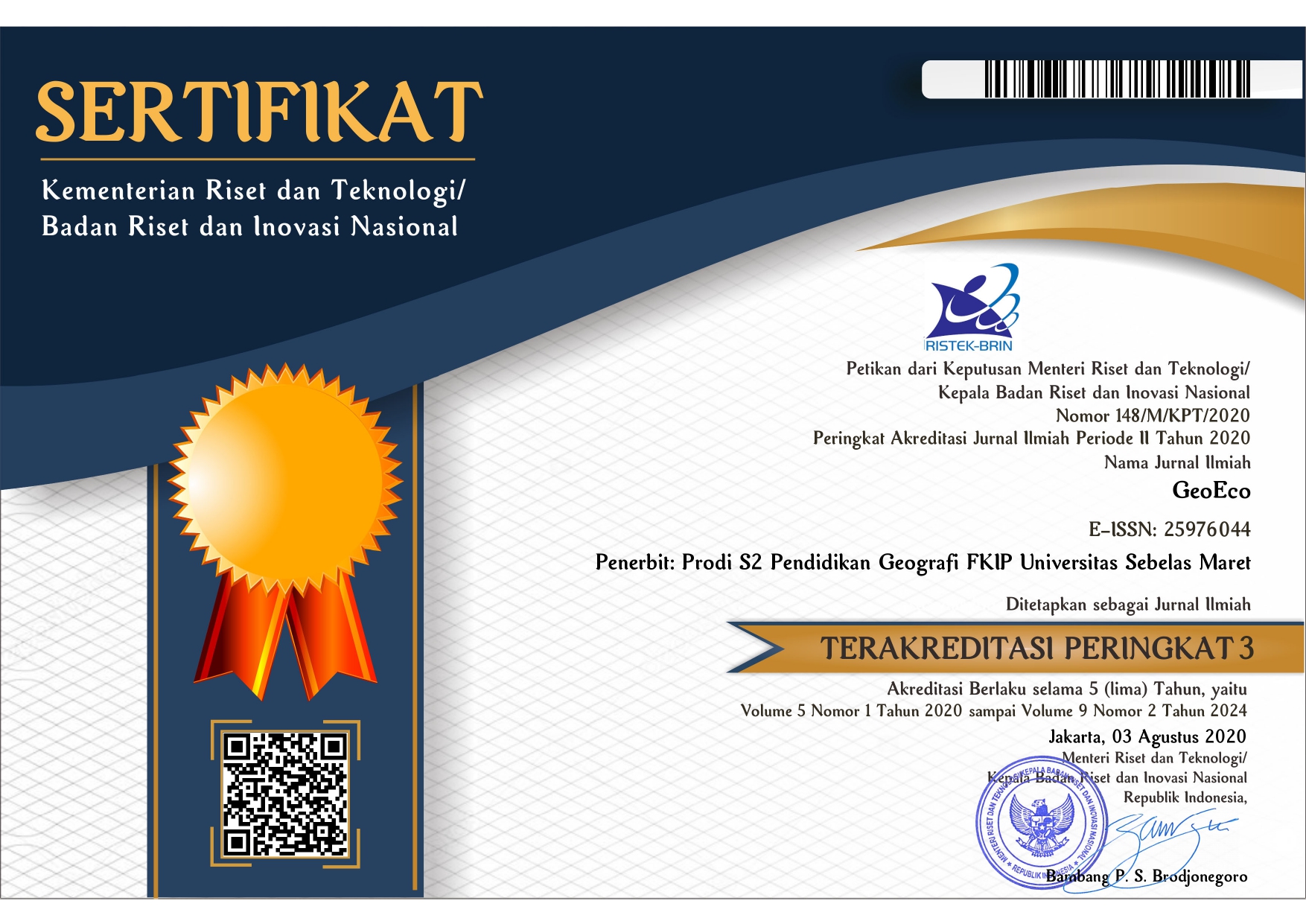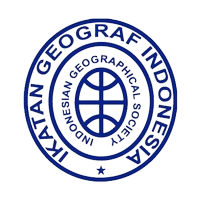DAMPAK PENAMBANGAN MINYAK TRADISIONAL TERHADAP KONDISI SOSIAL EKONOMI DAN LINGKUNGAN HIDUP (Studi Kasus Desa Ledok Kecamatan Sambong Kabupaten Blora)
Abstract
Background: Traditional oil mining in the Ledok village have been going on for a long time and have an
impact that changes in the condition of socially and economically. This activity also resulted in pollution of
water wells. The research objective is (1) determine the history and pattern management of mining (2)
determine the impact of mining on the socio-economic conditions and (3) determine the impact of mining on
water quality.
Methods: This study is a case study with a qualitative approach supported by quantitative. The data source
is the miners, the village officials, and 6 samples of well water. Data collection techniques are observation,
interviews, and laboratory testing. Analysis conducted on mining activities, miners, changes in community
conditions, and changes in water quality.
Results: (1) traditional mining in Ledok village was owned by Pertamina after their products are not
economically management handed over to local communities. (2) After the traditional oil mining in the
village Ledok people switch jobs of farmers into miners. Education level increases with increasing literacy
rate and the number of school age. Income levels increased by 1.6% compared to the previous income. (3)
Mining traditionally have a negative impact on the environment is pollution of water wells, covers pollution
physical quality that is water odorless, tasteless, and colorless turbid and pollution chemical quality value
TDS, DO, BOD, COD, pH and oils more than pollution limit threshold.
Keywords: Traditional mining activity, Socio-Economic Impacts, Environmental Impact
Full Text:
PDFRefbacks
- There are currently no refbacks.












.png)

